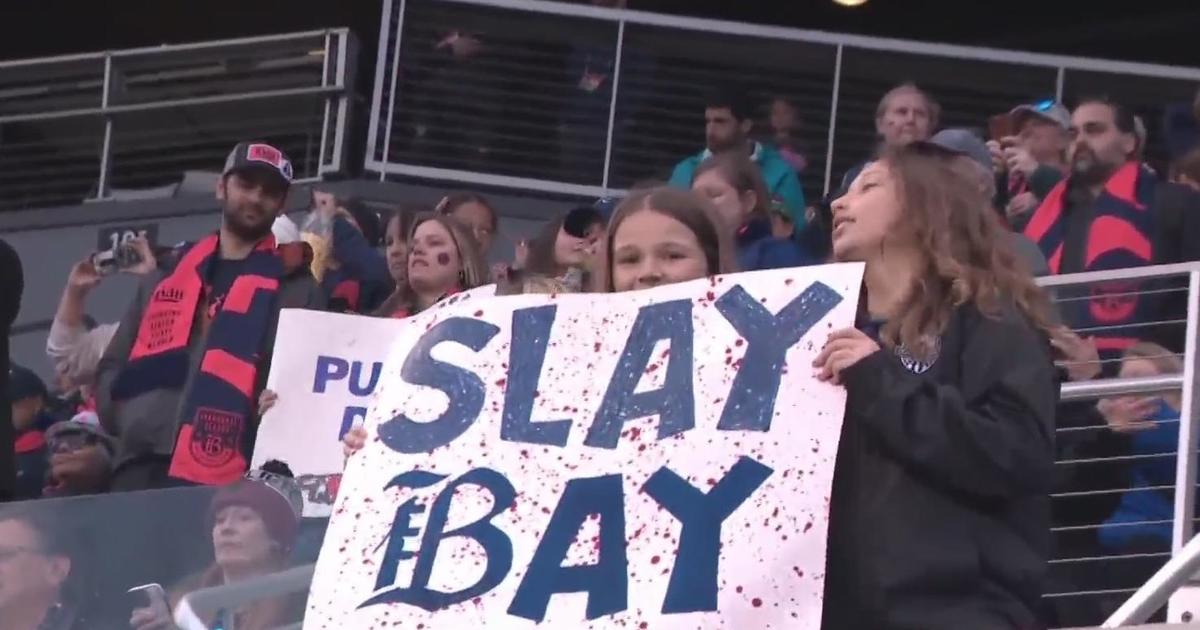San Jose, MLB Argue In Court Over Proposed A's Move
SAN JOSE (CBS SF) -- Lawyers for the city of San Jose and Major League Baseball squared off Friday in federal court as MLB asked a judge to dismiss a lawsuit by the city that accuses the league of unlawfully preventing the Oakland A's from moving to San Jose.
U.S. District Judge Ronald Whyte, who asked questions of both sides during the nearly two-hour hearing Friday morning, said at the end of the session that he would "try to get a decision out shortly."
San Jose, which filed an antitrust suit in June against MLB and league commissioner Bud Selig, wants a trial held on claims the city has been harmed economically due to the league's "unlawful exercise of market power" in blocking the A's from relocating to the South Bay.
The city is arguing it has been hurt financially because MLB has delayed a decision on the proposed relocation while the city has had an agreement with A's owner Lew Wolff since 2011 giving him an option to buy land near downtown San Jose for a potential stadium site.
Selig in 2009 appointed a relocation committee to evaluate territorial issues in the Bay Area, including the San Francisco Giants' claim to Santa Clara County, but the committee has been "shrouded in secrecy" and has yet to issue a report, the city argues in the lawsuit.
San Jose has also asked Whyte to rule that MLB violated state antitrust and unfair competition laws.
MLB filed a motion in August to toss the case, contending that past U.S. Supreme Court and other federal cases have upheld league exemptions from antitrust laws under "the business of baseball."
The league also said the courts have ruled it can decide on its own about relocating its teams, which requires approval of three-quarters of MLB team owners.
Whyte began Friday's hearing by reviewing major issues in the case, such as the scope of MLB's exemption from antitrust laws, first expressed by a 1922 Supreme Court decision that said baseball was not involved in interstate commerce so those laws do not apply to the league.
The Supreme Court affirmed MLB's antitrust exemption in 1953 and in 1972, but the judges in the latter case also said that the league's operations did amount to interstate commerce under antitrust laws and that the exemption was an anomaly, Whyte said.
Whyte said that antitrust laws apply to other major professional sports, such as boxing and football, and the fact that it does not hold for MLB "doesn't make any sense but that is what the law says."
San Jose's attorney Joseph Cotchett got up to argue for the city, saying that the 1972 case narrowed MLB's antitrust exemption only to the reserve clause, the league's right to prevent players from leaving to other teams.
Cotchett argued that judges in cases involving stadium concession businesses and radio broadcasting in 1982 and of a female umpire prohibited from working at MLB games all ruled that the league's exemption was anti-competitive and not "the business of baseball."
He also cited a 1993 case where a group of investors were blocked from moving the San Francisco Giants to Tampa, Fla., by MLB, which cited the league's antitrust exemptions.
The judge in that case ruled that MLB's exemption only applied to the reserve clause and not about relocating teams, Cotchett said.
Whyte then replied that if you follow the ruling of that case, "I don't think there is any question that you win."
"Our position is that the relocation of a team is not the business of baseball," Cotchett said later. "The business of baseball is to compete on the field."
MLB's attorney John Keker said that the judge in the 1993 case was wrong, that the business of baseball is not limited to the reserve clause and includes the right of MLB to control the movement of its teams.
"The way the league is set up, the way it's managed, the way the fan bases work—location and relocation is the core of the business of baseball," Keker said.
Keker told Whyte that four Supreme Court cases and five federal circuit court cases had sustained MLB's claim that the business of baseball is exempt from antitrust laws and that the plaintiffs were asking the judge to ignore them.
"No court has ever held that the business of baseball at its core doesn't go to league structure and location, because it does," Keker said.
Keker argued that San Jose has no standing to bring suit and claim general economic damages based on its option for a stadium site with Wolff.
He cited Hawaii vs. Standard Oil, a 1972 case with the U.S. Supreme Court that found that a state couldn't sue for wide-ranging damages to its economy while citing violations of antitrust laws.
The stadium land option allows Wolff to buy six parcels in San Jose for $6.9 million when the true value of the land is $29 million, so there is no economic harm, Keker said.
The A's have to approach Selig with a relocation plan "that makes sense to the commissioner," Keker said. "So far, the A's have not done that."
After the hearing, Cotchett made himself available to the news media outside the federal courthouse while Keker and his team walked past reporters.
"I think that you saw it in the courtroom that the judge is in a dilemma," Cotchett said.
He said that he expects Whyte to release a decision on MLB's motion to dismiss the case within about 30 days.
San Jose City Attorney Richard Doyle said that the A's on Monday paid the city $25,000 to extend the team's option, which was set to expire on Nov. 1, for another year.
"We're still trying to work with the A's to bring them to the South Bay," Doyle said.
"The arguments were well done on both sides," Doyle said about the hearing.
(Copyright 2013 by CBS San Francisco and Bay City News Service. All rights reserved. This material may not be published, broadcast, rewritten or redistributed.)



